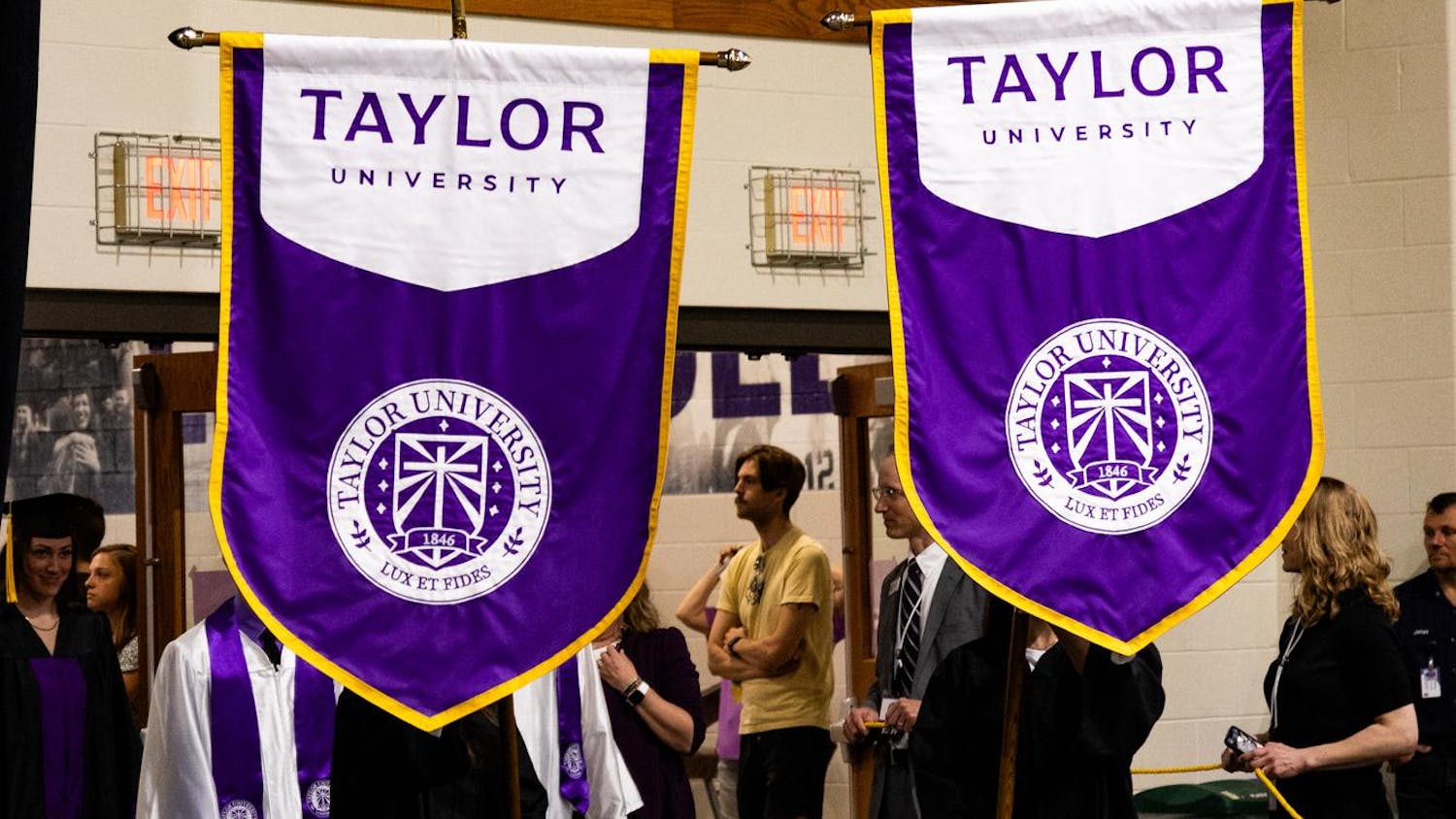How many times a day do you encounter an opinion dump?
This could look like a reaction to the most recent D.C. meal. It could be a response to that day’s chapel speaker or to the latest event on campus. It could be a rant about dorm conditions, the ongoing construction, classwork or the inconvenience of finding a ticket on your windshield.
Often, these dumps are expressions of frustration or displeasure.
Rarely do they look like wisdom, love, patience or empathy.
And while opinions have the potential to promote productive discussions, helpful solutions or deeper understanding of a situation, these outcomes seem to be the exception — not the norm.
Could this be a gap?
An unhelpful space between the opinions we hold and the careful action or collective solutions that will genuinely benefit the Taylor community?
There seems to be a hiccup between our opinions and the action we take on those opinions — between the hot takes we willingly dish out to friends and the intentional communication required to achieve understanding and positive change.
Many of our opinions may be validated by personal experience. And opinions themselves are not inherently bad. But unless they fuel intentional learning, understanding and/or action, they beg the question: what’s the point?
More often than not, these opinions birth unhelpful ranting sessions — which may be useful in the sense that they allow us to let off steam and invite others to commiserate with us, but are unhelpful when it comes to sparking change that will work toward the well-being of our community.
Student body Vice President Josue Villalobos notes that expressing opinions is a normal human tendency and can play an important role in fueling action. However, opinion-sharing — if not done carefully — can quickly become more harmful than helpful.
“Sometimes, it is customary to think before you speak and act on something; (action often) begins with speaking up first,” Villalobos said. “But, most of the time, people tend to talk inappropriately (though, in many cases, it could be unintentional), which can bring more polarization than … (solutions).”
Opinions are sticky creatures that can do more harm than good if not handled appropriately. If handled carefully, however, this freedom of expression has the potential to inspire constructive action.
The Dining Commons seems to have noticed this reality and acted accordingly.
New “student forums,” designed to encourage conversation between students and dining staff, have begun to bridge the space between opinions and action.
“The key benefit of student forums is the opportunity for Trojans to share their thoughts, concerns and ideas in a relaxed and informal setting,” Interim General Manager of Parkhurst Dining Stephanie Lang said. “While our other feedback programs are effective, the ability to engage with students in person allows for a much more dynamic flow of ideas. Further, students who attend these forums feel empowered when they see their suggestions implemented in the dining program.”
Perhaps the Dining Commons’s student forums should set a precedent for our community: a model of intentional conversation and careful listening designed to spark increased empathy and collaborative solutions.
It’s a process bookended with respect and care for those present who might hold an opinion different from your own.
“As an intentional community, we must learn to be a listening ear, crying shoulder and helping hand to hear other opinions first [before] we act on speaking,” Villalobos said. “But overall, I also know that none of us are perfect … It still can be a process of learning to strive to become the Christ-image of Jesus Christ to learn and grow within our community and act on problems together.”
There is progress to be made, but grace in the process.
Let’s share our opinions wisely as we move toward action — mind the gap, if you will.



